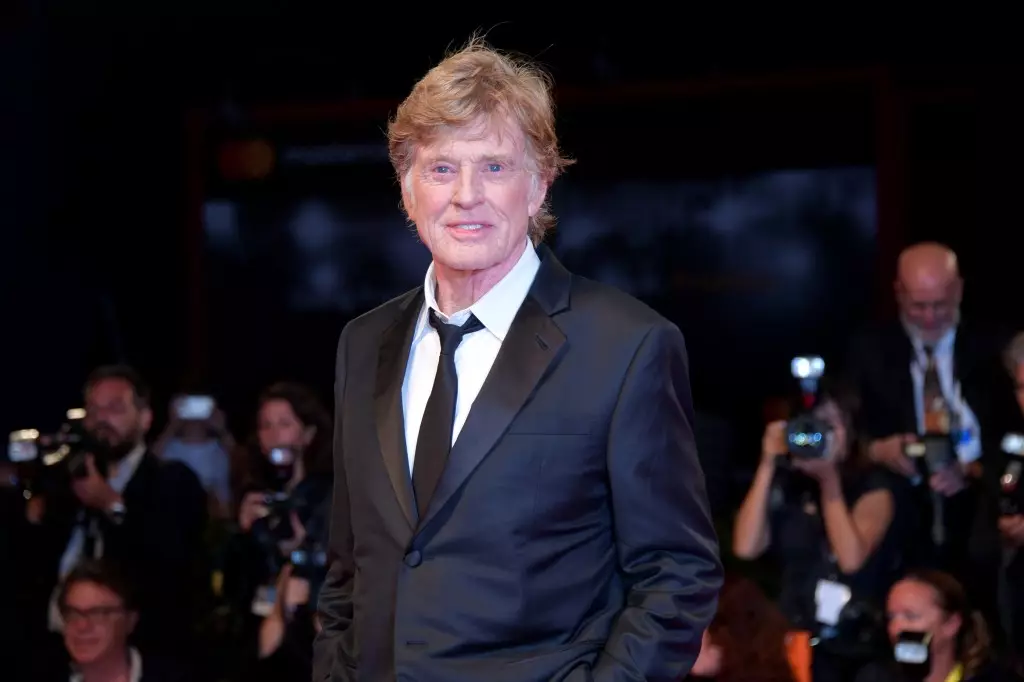Robert Redford’s life epitomizes the paradoxes that define true artistry and authenticity. Celebrated worldwide as a charismatic actor and a towering figure in American cinema, he possessed a rebellious spirit rooted in the tumult of the 1960s. Yet, beneath this youthful defiance lay a keen sense of disillusionment with Hollywood’s institutional machinery. His aversion to the industry’s commercialism and superficial glitz often clashed with his own ambitions, revealing a man striving for artistic integrity amid the temptations of fame. Redford’s complex personality cannot be confined to the screen alone; he embodied contradictions that made him a true renaissance figure—adamant socialist ideals juxtaposed with Hollywood glamour, rugged individualism entangled with calculated professional choices.
His disdain for the Hollywood establishment was not mere cynicism; it was born from a genuine desire for meaningful storytelling beyond the commercial conveyor belt. While his on-screen persona was that of a suave, idealistic lover who easily attracted the women in his movies, off-camera he was wary of the very industry that produced such glamour. Redford’s distaste for Los Angeles and the studio system was a reflection of his broader critique of the superficial culture that dominated entertainment. His aloofness and skepticism about the Hollywood machinery made his career more unpredictable, often fraught with indecisiveness and moments of hesitation—traits that complicated his professional journey but also underscored his commitment to authenticity.
From Hollywood Heartthrob to Cultural Activist
Redford’s early career was marked by a dance between mainstream success and a desire to carve out his own path. His initial ambitions ranged from an elusive Broadway stardom to fleeting film projects that didn’t quite capture his true interests. While he flirted with commercial hits like *War Hunt* and *Tall Story*, they failed to define him. Instead, it was his move into more edgy, politically charged films—*The Candidate*, *All the President’s Men*—that revealed his deeper engagement with societal issues. These roles, often crafted in tension with Hollywood’s expectations, showcased a star willing to use his fame for advocacy rather than mere escapism.
The actor’s friendship with Paul Newman—another Hollywood icon who also balanced celebrity and principled activism—highlighted Redford’s unique stance. Their camaraderie was rooted in shared concerns about the industry’s superficiality and the importance of using art as a means of social critique. His involvement in films like *The Sting* brought him commercial success, but his true passion remained in fostering alternative filmmaking avenues. That led to his stewardship of the Sundance Institute—an institution dedicated to nurturing independent voices, away from the Hollywood mainstream.
Sundance and a Legacy Beyond Acting
Through his dedication to Sundance, Redford redefined what it meant to be a Hollywood star. He championed the voices of new and experimental filmmakers, viewing cinema as a form of activism as well as art. His investment in independent filmmaking was not just a career choice but a moral stance—he believed true stories could only be told when free from studio shackles. His role as a mentor and advocate positioned him as more than an actor; he became a guardian of independent creative expression.
Despite the glitz, Redford’s personal life was deeply intertwined with principles. His environmental advocacy and support for Native American causes underscored his authenticity. Films like *Ordinary People* reflected his desire to portray genuine human struggles—an effort to elevate cinema from entertainment to a platform for discussing vital issues. His reluctance to accept the glossy veneer of Hollywood made him a critic of superficiality, but also a symbol of integrity.
Self-Criticism and Unfinished Aspirations
Critically examining Redford’s career reveals that his indecisiveness and occasional clashes with collaborators hindered what could have been a smoother artistic journey. His hesitation to join projects or strategic disagreements, such as with *Gatsby* and *All the President’s Men*, demonstrated a man haunted by perfectionism and a desire for control over his work. His candor about loathing the “pre-process” of filmmaking reflects a poignant truth: that he valued the final product above the path taken to get there, often risking opportunities because they didn’t align with his values.
His relationship with collaborators was complex—though he could be fiercely loyal, he also encountered conflicts that sometimes marred his reputation as a team player. Yet, these struggles only underscored his integrity; he prioritized authenticity over commercial conformity. His career is a testament to the notion that true legends are often marked by their contradictions—his rebellious core and Hollywood veneer existing side by side.
In the end, Robert Redford remains an enduring symbol of a Hollywood that could be more than just glamour and surplus. He challenged the system from within, advocating for stories that matter and filmmakers who dared to dream differently. His influence extends beyond his films; it is embedded in the independent spirit he championed and the authenticity he relentlessly pursued. Redford’s legacy is less about the roles he played and more about the integrity he embodied—a true icon of artistic courage.

